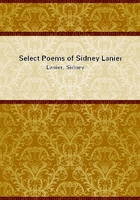
第57章 CHAP. XIX.(2)
Sec. 215. Secondly, When the prince hinders the legislative from assembling in its due time, or from acting freely, pursuant to those ends for which it was constituted, the legislative is altered: for it is not a certain number of men, no, nor their meeting, unless they have also freedom of debating, and leisure of perfecting, what is for the good of the society, wherein the legislative consists: when these are taken away or altered, so as to deprive the society of the due exercise of their power, the legislative is truly altered; for it is not names that constitute governments, but the use and exercise of those powers that were intended to accompany them; so that he, who takes away the freedom, or hinders the acting of the legislative in its due seasons, in effect takes away the legislative, and puts an end to the government, Sec. 216. Thirdly, When, by the arbitrary power of the prince, the electors, or ways of election, are altered, without the consent, and contrary to the common interest of the people, there also the legislative is altered: for, if others than those whom the society hath authorized thereunto, do chuse, or in another way than what the society hath prescribed, those chosen are not the legislative appointed by the people.
Sec. 217. Fourthly, The delivery also of the people into the subjection of a foreign power, either by the prince, or by the legislative, is certainly a change of the legislative, and so a dissolution of the government: for the end why people entered into society being to be preserved one intire, free, independent society, to be governed by its own laws; this is lost, whenever they are given up into the power of another.
Sec. 218. Why, in such a constitution as this, the dissolution of the government in these cases is to be imputed to the prince, is evident; because he, having the force, treasure and offices of the state to employ, and often persuading himself, or being flattered by others, that as supreme magistrate he is uncapable of controul; he alone is in a condition to make great advances toward such changes, under pretence of lawful authority, and has it in his hands to terrify or suppress opposers, as factious, seditious, and enemies to the government: whereas no other part of the legislative, or people, is capable by themselves to attempt any alteration of the legislative, without open and visible rebellion, apt enough to be taken notice of, which, when it prevails, produces effects very little different from foreign conquest. Besides, the prince in such a form of government, having the power of dissolving the other parts of the legislative, and thereby rendering them private persons, they can never in opposition to him, or without his concurrence, alter the legislative by a law, his conse power, neglects and abandons that charge, so that the laws already made can no longer be put in execution. This is demonstratively to reduce all to anarchy, and so effectually to dissolve the government: for laws not being made for themselves, but to be, by their execution, the bonds of the society, to keep every part of the body politic in its due place and function;when that totally ceases, the government visibly ceases, and the people become a confused multitude, without order or connexion.
Where there is no longer the administration of justice, for the securing of men's rights, nor any remaining power within the community to direct the force, or provide for the necessities of the public, there certainly is no government left. Where the laws cannot be executed, it is all one as if there were no laws;and a government without laws is, I suppose, a mystery in politics, unconceivable to human capacity, and inconsistent with human society.
Sec. 220. In these and the like cases, when the government is dissolved, the people are at liberty to provide for themselves, by erecting a new legislative, differing from the other, by the change of persons, or form, or both, as they shall find it most for their safety and good: for the society can never, by the fault of another, lose the native and original right it has to preserve itself, which can only be done by a settled legislative, and a fair and impartial execution of the laws made by it. But the state of mankind is not so miserable that they are not capable of using this remedy, till it be too late to look for any. To tell people they may provide for themselves, by erecting a new legislative, when by oppression, artifice, or being delivered over to a foreign power, their old one is gone, is only to tell them, they may expect relief when it is too late, and the evil is past cure. This is in effect no more than to bid them first be slaves, and then to take care of their liberty; and when their chains are on, tell them, they may act like freemen. This, if barely so, is rather mockery than relief; and men can never be secure from tyranny, if there be no means to escape it till they are perfectly under it: and therefore it is, that they have not only a right to get out of it, but to prevent it.
Sec. 221. There is therefore, secondly, another way whereby governments are dissolved, and that is, when the legislative, or the prince, either of them, act contrary to their trust.
First, The legislative acts against the trust reposed in them, when they endeavour to invade the property of the subject, and to make themselves, or any part of the community, masters, or arbitrary disposers of the lives, liberties, or fortunes of the people.